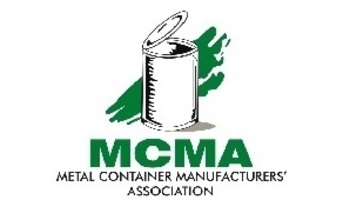
MCMA insists that ISO certification should be considered rather than only BIS-like FSSAI to save the industry and tackle the current shortage of raw materials in the domestic market of India.
The Rs.10,000 crore metal packaging industry of India is in dilemma as they have hardly any option left to secure raw material as most of the global players and suppliers of Tinplate/ Tin free steel have raised their hands to supply to India in the wake of imposition of BIS standards.
The Metal Containers Manufacturers Association of India a primary organization that represents the interests of companies involved in the production of metal containers, packaging and allied components - representing MSMEs engaged in the business of metal cans, containers and components etc. told that there is going to be an acute shortage of raw material as the global players have refused to accept their orders to provide tinplate/tin free steel while the domestic market is not so equipped to fulfill the demand.
This industry which is largely dependent upon the import of tinplate/ tin free steel from various countries is under tremendous pressure as there is a shortage of raw material and the prices have escalated more than 15% recently.
The Metal Container Manufacturers' Association (MCMA) - has sought to put on hold the implementation of Steel and steel products Quality Control Order dated 17th July, 2020. Norms. The association has requested the Ministry of Steel to postpone the implementation of the QCO till sufficient quantity of tinplate/ tin free steel is produced locally to meet the industries demand of 700000 tonnes per annum as the industry is already reeling under the pressure due to the pandemic enforced lockdown across the country and further virus threat looming large at several countries including India.
The association has also requested the ministry of steel to allow use of ISO certification materials in addition to BIS certified material. MCMA requested from the Ministry to allow the use of materials which are aligned to ISO. The same has been included in FSSAI order and also recommended by the Ministry of micro, small & medium enterprises (MSME).
The Ministry of Steel issued an order called: the steel and steel products quality control order (QCO) on 17 July 2020. This order mandates BIS Certification on the major input required by the industry like tinplate and tin-free steel. It imposes restrictions on steel products like easy-open ends, peel off ends, which the industry imports from several foreign countries.
The MCMA believes that the QCO has been notified at a time when the industry is already reeling under the pressure and trying to reset the business during the pandemic. The industry feels that it is difficult to force the international suppliers to go for BIS certifications as the procedure of BIS registration is unmanageable during these times.
The MCMA says that there is a shortage of raw material used for packaging food and other items. It has resulted in an increase in prices of packaging items.
The tin containers and closures are mostly used for packing of edible and non-edible items. The tin-free steel is majorly used to manufacture closures, crowns, and components used to seal bottles for soft drinks, beer, juices and flavored milk etc.
The steel and steel products quality control order dated July 17, 2020, which directs usage of BIS certified raw materials, has had an impact on the metal container packaging industry in India. This has resulted in a shortage of raw materials as imported inputs don't have BIS certification. Following representations by the MCMA, the government had postponed it till 17 April 2021 but the industry seeks some more time for implementation of QCO at least till 31st March 2022.
The government issued an order to bring a number of steel products under quality control. The order notified steel items cannot be produced, sold/traded, imported and stocked unless they have BIS mark. MCMA members believe that due to the Covid-19 pandemic, the foreign tinplate mills may not be in a position to procure the relevant BIS license which will impact the industry significantly.
India is not a very big market for international suppliers of tin plates and they will not be interested in going into bureaucratic and expensive BIS certification. Since these suppliers have already stopped shipping tin plates to India there is a huge shortage of the products in the market.
MCMA insists that ISO certification should be considered rather than only BIS-like FSSAI to save the industry and tackle the current shortage of raw materials in the domestic market of India.
Similar kinds of Quality Control orders had been issued earlier also in the year 2008, 2015 and 2017 but keeping in mind the demand supply gap, practical difficulties in implementation and requirement of the MSME sector particularly in the metal packaging the Government withdrew the draft quality control order on tinplate/ tin free steel. The situation has not changed since then. There is still a demand supply gap of 250000 tonnes per annum and the industry mainly continues to be in the MSME sector therefore, MCMA once again suggested that the QCO dated 17th July, 2020 on tinplate/tin free steel and the products should be withdrawn completely. It is apprehended that its implementation will seriously affect the trade and industry engaged in the metal packaging sector and will result in loss of employment and non-availability of metal packaging to essential sectors like food and pharma.
END


























